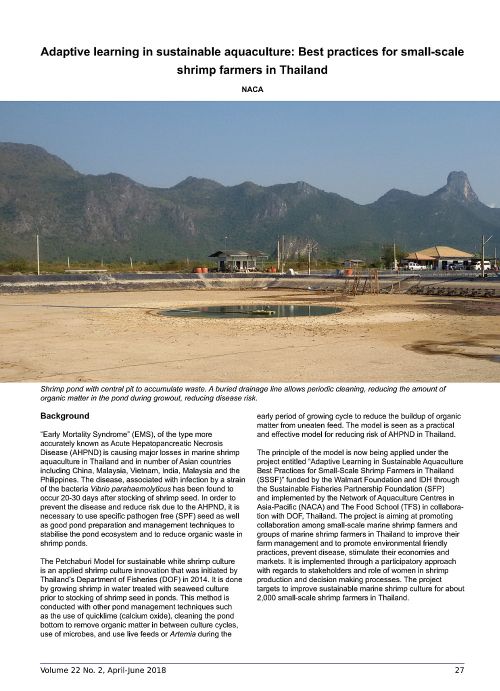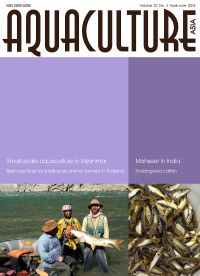Adaptive learning in sustainable shrimp aquaculture: Best practices for small-scale shrimp farmers in Thailand
11 April 2018 | 5468 Downloads | .pdf | 1.51 MB | Better management practices, Health and Biosecurity, Livelihoods, gender and social issues, Shrimp, Thailand
Early mortality syndrome of the type more accurately known as Acute Hepatopancreatic Necrosis Disease is causing major losses in marine shrimp in a number of Asian countries. The disease is associated with infection by a strain of the bacteria Vibrio parahaemolyticus. Here we describe a project to reduce the incidence of disease and improve crop outcomes for small-scale farmers in Thailand via an adaptive learning approach, implemented in association with farmer societies and collectives.
Creative Commons Attribution.

